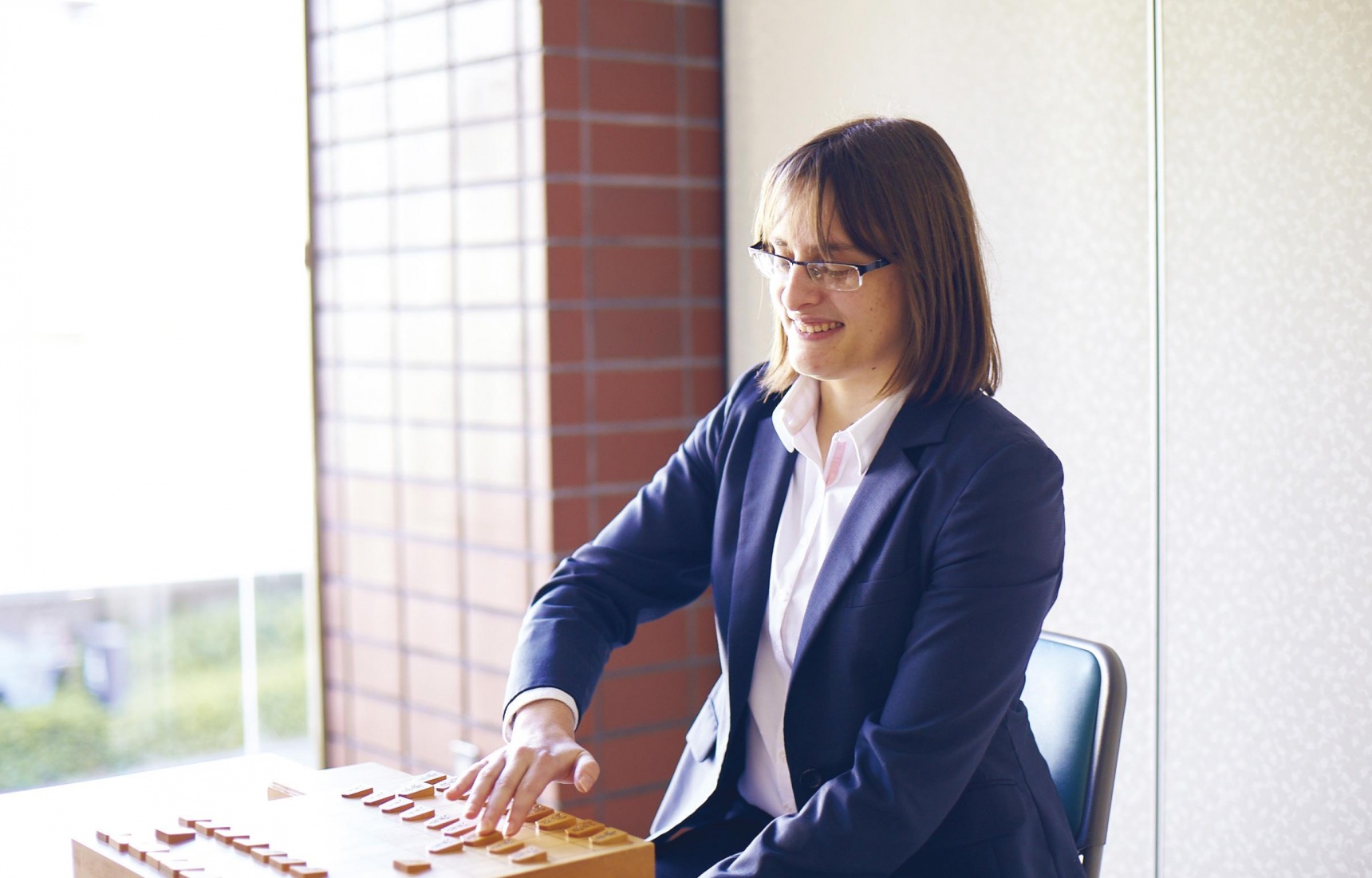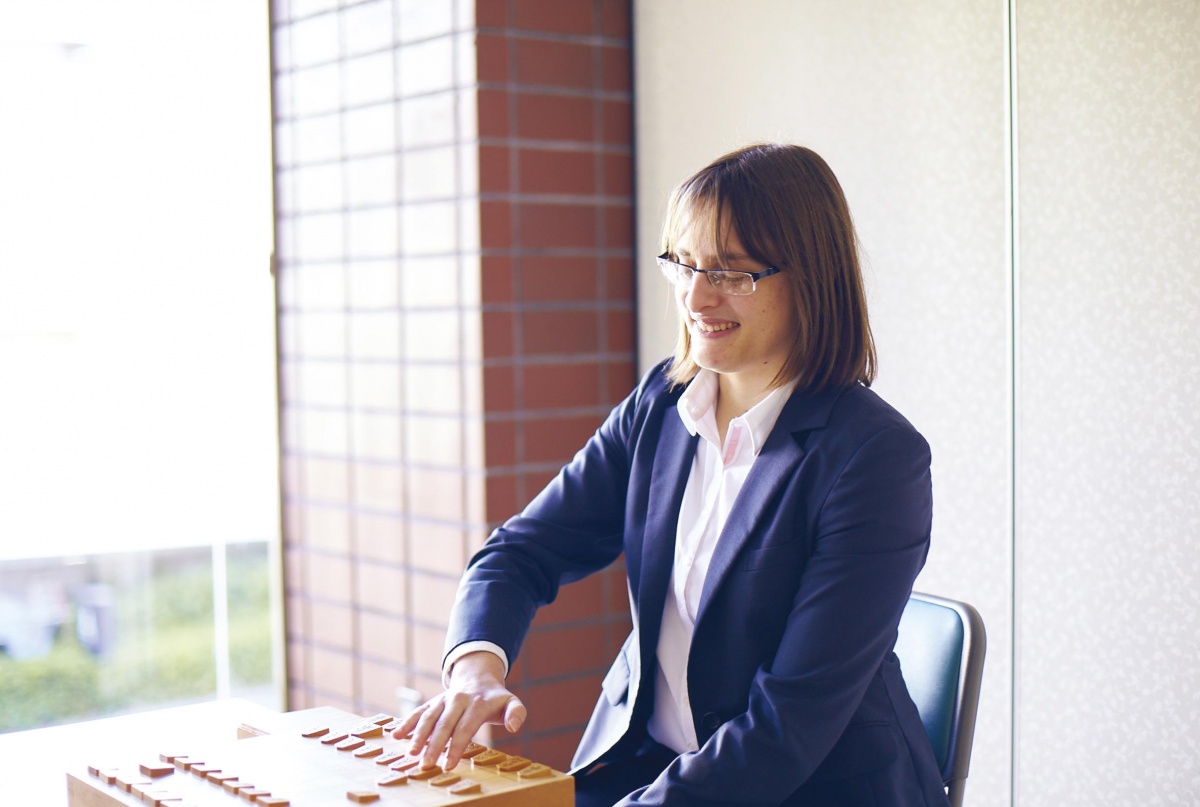Japan's First Foreign Female Shogi Pro
Poland’s Karolina Styczynska became the first foreign-born female professional shogi (Japanese chess) player in February 2017. She learned about the game from a Japanese manga, and played shogi on the Internet before arriving in Japan. She spoke about her passion for shogi, her progress and her goals.
By Highlighting Japan
https://www.gov-online.go.jp/eng/publicity/book/hlj/html/201903/201903_11_en.html
Ranked as a women’s 1-kyu professional shogi player, Karolina Styczynska has gained attention as the game’s first and only foreign female pro. Since her childhood she’s liked to puzzle things out and play competitive board games, and was the only student in her elementary school to enter a chess tournament.
She discovered shogi at the age of sixteen while reading a Japanese manga. She began playing online, refining her skills against competitors of various ages and nationalities from the world over. Thoroughly entranced by the game—which resembles chess and yet is completely different in nature—she entered European online tournaments and nurtured her growing ambition to become a master player.
In 2011, professional Madoka Kitao—currently ranked women’s 2-dan—extended an online invitation to Styczynska to visit Japan. At the age of nineteen she traveled here for the first time, just after the 2011 Great East Japan Earthquake. Now fluent in Japanese, Styczynska smiles as she remembers those early days. “My family was worried, because at the time I couldn’t speak the language, but I felt that I’d be all right as long as I had shogi. I was staying with Madoka Kitao, going to shogi Kaikan (shogi Hall) every day to play. Thinking back, it was a pretty surreal experience.”
Styczynska returned to Poland, and after graduating from university there was admitted to Yamanashi Gakuin University in Japan as a third-year student. She continued to pursue her ambition to become a professional shogi player.
In 2017, during her second year of graduate school, she was promoted to 2-kyu, achieving her goal of becoming a professional. She wrote her master’s thesis on the internationalization of shogi, and after graduation played in an international tournament in Los Angeles in 2018—an event intended to popularize shogi overseas. As the game’s first foreign female shogi professional, she’s playing a huge role in popularizing the game worldwide, including introducing the rules of shogi in English on her website and publishing International shogi Magazine.
In addition to playing official matches, Japanese shogi professionals are involved in diverse activities to spread the popularity of their game, including teaching shogi workshops, writing books and participating in various events. Styczynska is currently under contract to a Japanese corporation that sponsors her—another noteworthy item on her resume, since she is the first female shogi player to earn corporate sponsorship. As a non-Japanese shogi professional, she also teaches courses on the game in English. “I’m very busy, but I love shogi so it never feels like a burden to me. It’s fun, because I can play shogi every day and make a living,” she says happily.
She also declares that shogi is an art, and feels most fulfilled when she makes a great or elegant move. Styczynska speaks passionately when describing the game. “The great appeal of shogi is being able to capture your opponent’s pieces and place them back on the board,” she says. “This aspect of gameplay provides far more variables than chess, and makes it more interesting, because even when you get into trouble you can still find a way to come back and win. There is even aesthetic beauty in the way a shogi piece is placed. As you become a better player, you begin to see the shortest and most aesthetically pleasing paths to victory. It’s an instinctual thing—I can’t really explain it.” She has picked up boxing to improve her stamina, necessary to endure long matches.
Although the lifestyle and food in Tokyo are far different from those in her home country, Styczynska says she’s finally getting used to them. When asked what she liked about Japan, she mentions safety and the advanced railway system. But with a smile, she notes that shogi is the best thing about Japan. As to her ambitions, Styczynska says: “I never imagined that I’d become a professional shogi player in Japan. But that’s why life is so interesting, because you never know what the future holds. I just want to become a better player and be promoted to 1-dan, so this year I’ll work 150 percent harder.”






